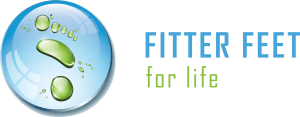What is extracorporeal shock wave therapy?
Extracorporeal shock wave therapy (ESWT) is a non-invasive method used instead of surgery, which uses pressure waves to treat various musculoskeletal ailments. High-energy acoustic waves, (shock waves) deliver a mechanical force to the body’s tissues to assist with regaining mobility.
When is ESWT necessary?
If you are suffering from chronic pain and have tried everything possible to get rid of it, such as medication, physiotherapy, acupuncture or even injections, and the pain always returns or worsens over time, then ESWT is most certainly recommended.
Chronic pain is often caused by inflammations or calcifications of tendons or the soft tissue located close to muscles. This pain is also caused by muscular trigger points or injury caused by overloading the muscles. Conditions such as degenerated tendons (Achilles tendonitis), heel pain (plantar fasciitis) and tennis elbow (lateral epicondylitis) are, in fact, quite common and can be well treated with ESWT.
A few of the more common conditions that extracorporeal shockwave treatment is used for are:
- Plantar Fasciitis, also known as Policeman's heel or Runners Heel
- Tendon Injuries such as Achilles Tendonitis and Patella Tendinopathy
- Medial Tibial Stress Syndrome - Shin Splints
- Delayed bone healing and Stress Fractures
- Morton’s neuroma
- Cellulite and Lymphoedema
The most common condition that ESWT is used for is Plantar Fasciitis (Runner’s Heel). So, considering this, let’s take a brief look at some of the signs and symptoms of Plantar Fasciitis.
Sufferers of this condition tend to feel a sharp ache in their heel or along the arch of their foot. Further to this, you may experience a sudden strain on your feet when getting out of bed in the morning, giving you a slight hobble because your foot tried to heal itself overnight.
This pain normally subsides when you begin to exercise. Essentially, it is a heel related pain that develops in people who either overtrain or fail to stretch their calf muscles pre- or post run.
What happens in an ESWT session?
A non-invasive probe is applied to the skin. A short pulsed electrical charge creates an pressure (shock) wave that is focused on the targeted injury. The shock waves create a force on the tissues that alleviates pain and induces healing. Shock waves improve metabolism in the area of injury. These shock waves also assist in rapidly improving blood flow, stimulating the body to repair itself.
What happens next?
After treatment, most patients find that they can immediately bear weight on the injured area - but this isn’t an excuse to jump straight back into training. You are advised to reduce the level of exercise for at least one to two weeks after treatment.
When should I avoid ESWT?
There have been very few complications ever reported with ESWT. However, it is advisable to seek medical advice. Generally, persons with have poor sensation (neuropathy) or hypersensitivity (extreme sensitivity) should not have this procedure.
Extracorporeal shock wave therapy is not suitable for treating Achilles tendinopathy or plantar fasciitis if you:
- are pregnant
- suffer from seizures
- are taking medication to thin your blood
- have a blood clotting disorder
- are under the age of 18
- have been diagnosed with bone cancer
- have an infection in your foot
- have a history of Achilles tendon or plantar fascia ligament rupture
- have had a steroid injection into the affected area in the previous 12 weeks
Extracorporeal shock wave therapy is considered one of the most innovative developments in recent pain therapy. Contrary to conventional treatment methods, extracorporeal shock wave therapy assists in removing the cause of pain directly at the point of injury, without any medication or surgery.
Successful results can be achieved after a few treatment sessions. Please be aware that treatment responses may vary, and success cannot always be guaranteed. Fear not though, you're in good hands as Fitter Feet For Life is one of the most comprehensive centres for the treatment of foot disorders in all of London.
To find out more about the extracorporeal shock wave therapy treatments we offer, be sure to either get in touch with us or visit our website now!
If you’ve already managed to see a professional and are looking to book an extracorporeal shock wave therapy session, you can do so book-online.



